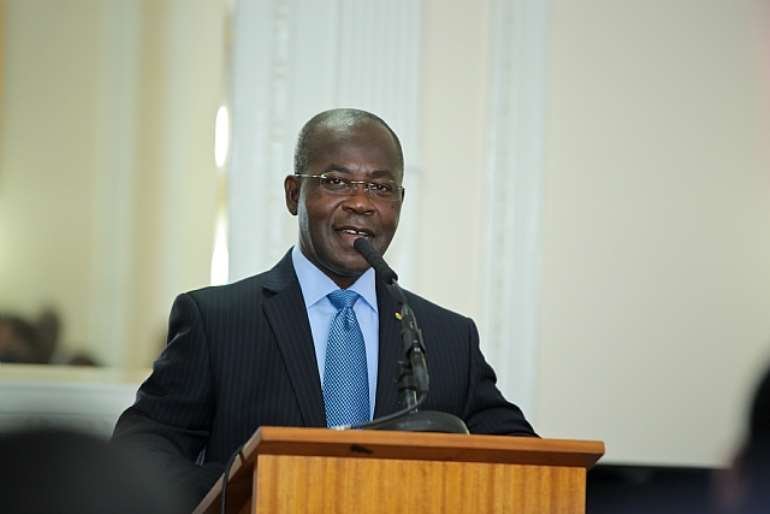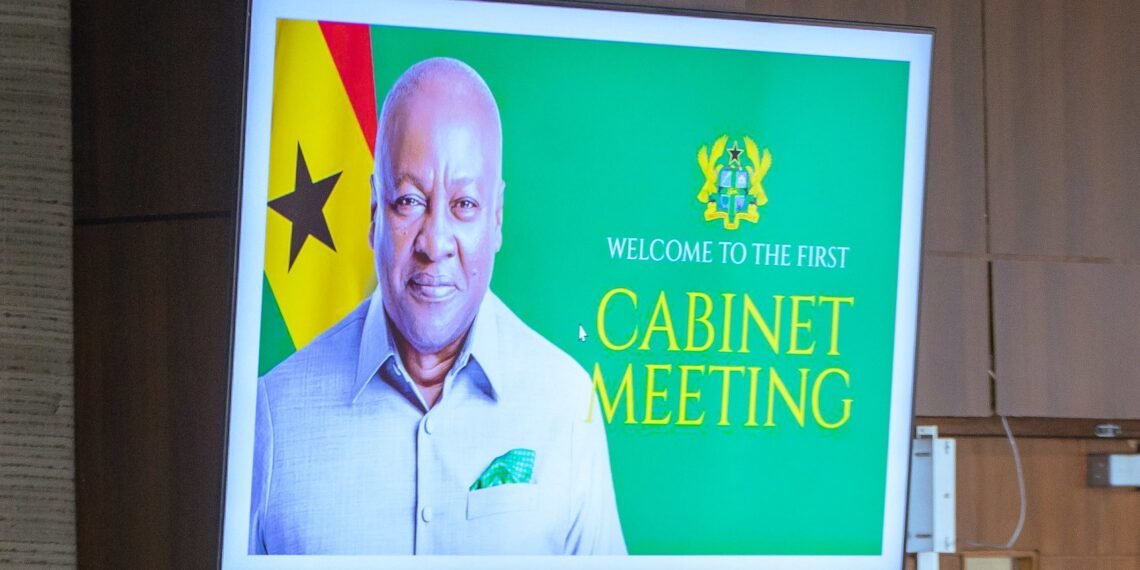The Office of the Cabinet Secretary has issued a firm caution to all Ministers of State to strictly adhere to established Cabinet procedures before announcing or implementing any major policy or program on behalf of the Government.
The directive, signed by Professor Kwaku Danso-Boafo, Cabinet Secretary, warns against the growing practice where some Ministers publicly disclose or promote major government initiatives without prior Cabinet discussion or approval.
In a statement titled “Adherence to Cabinet Procedures in the Formulation and Announcement of Public Policies,” the Cabinet Secretary emphasized that such practices undermine the collective responsibility principle that underpins good governance and constitutional order.
According to him, no policy or program can be considered an official position of Government unless it has undergone the requisite Cabinet deliberations and secured formal approval.
“Cabinet wishes to remind all Ministers that, in accordance with established governance protocols and the collective responsibility principle enshrined in the Constitution, no public policy, program, or major initiative shall be considered a policy of Government unless it has been duly submitted to, deliberated upon, and approved by Cabinet.”
Professor Kwaku Danso-Boafo, Cabinet Secretary
The directive seeks to reinforce the constitutional and administrative boundaries that ensure government decisions are coherent, collectively endorsed, and institutionally legitimate.
Trend of Unilateral Announcements
Professor Danso-Boafo noted that the recent trend of unilateral announcements risks creating confusion among the public and stakeholders while undermining the integrity of collective decision-making within the Executive arm of Government.

He made clear that all Ministers are to follow due process by submitting proposed policies, programs, or legislative initiatives through the appropriate channels.
“For the avoidance of doubt, Ministers are respectfully requested to ensure that all proposed policies, programs, or legislative initiatives intended for public announcement or implementation are first submitted to the Cabinet Secretariat, through the Chief Director of their respective Ministries, for inclusion on the Cabinet agenda and subsequent consideration by Cabinet”.
Professor Kwaku Danso-Boafo, Cabinet Secretary
Professor Danso-Boafo’s directive underscores the central role of the Cabinet Secretariat in coordinating the Government’s policy agenda and ensuring procedural compliance.
It also reaffirms the constitutional principle of collective Cabinet responsibility, which requires Ministers to publicly support agreed decisions and policies once they are approved by Cabinet, regardless of any initial personal or ministerial reservations.
The statement further stressed that this procedural discipline is essential to maintaining policy coherence, institutional credibility, and public trust in government communications.
He therefore urged Ministers to desist from making public statements or implementing policies that have not received the Cabinet’s formal approval.
“Any such public statement or initiative undertaken outside this process shall not be deemed to represent official Government policy,”.
Professor Kwaku Danso-Boafo, Cabinet Secretary
Importance of Institutional Order
The statement from the Cabinet Office serves as a strong reminder of the importance of institutional order and disciplined governance within the executive branch.
It reflects an effort to prevent fragmentation in policy communication and implementation, which often occurs when individual Ministries or officials act independently without the consent of Cabinet.

This directive could also be seen as a move to ensure that government actions remain consistent with the priorities of the administration under President John Dramani Mahama, by preventing instances where Ministries may prematurely or unilaterally roll out programs that have not received the necessary Cabinet scrutiny.
The warning may also be interpreted as an attempt to restore procedural discipline in governance, especially at a time when coordinated policy execution is essential to achieving national development goals.
Professor Danso-Boafo’s reminder reinforces the accountability mechanisms that define Cabinet governance in Ghana’s constitutional framework.
By reiterating that only Cabinet-approved initiatives constitute official government policy, the directive sets a clear standard for ministerial conduct and communication going forward. The message concludes with a courteous but firm appeal for compliance: “Please be guided accordingly.”

The Cabinet Secretary’s statement highlights an ongoing institutional concern about maintaining coherence and order in policy formulation and public communication.
It is expected that Ministers will take heed of this directive to avoid situations where unapproved announcements or initiatives could misrepresent government’s official stance or mislead the public.
By reasserting the authority of the Cabinet as the final approving body for government policy, the directive reaffirms the importance of unity and discipline at the highest level of executive decision-making — principles that lie at the heart of effective governance.
READ ALSO: GNPC Reports Higher Oil Profits Despite Lower Liftings in 2024























